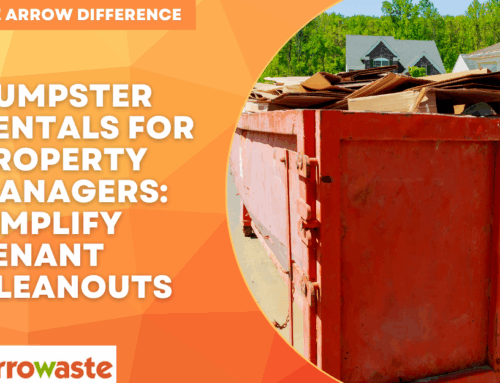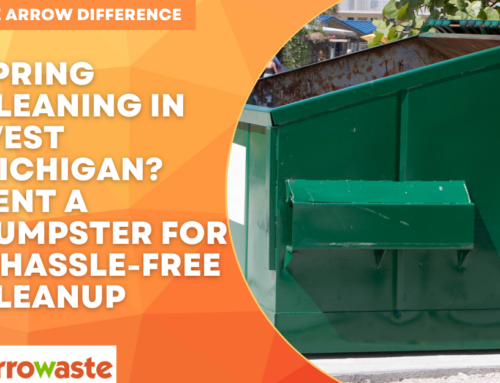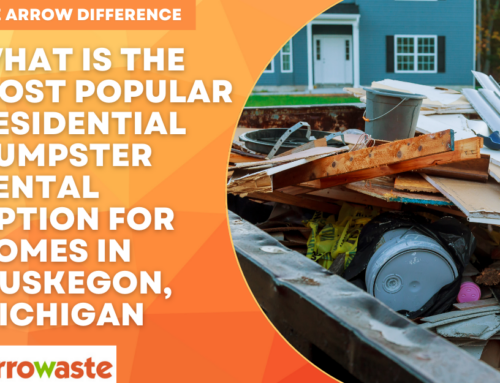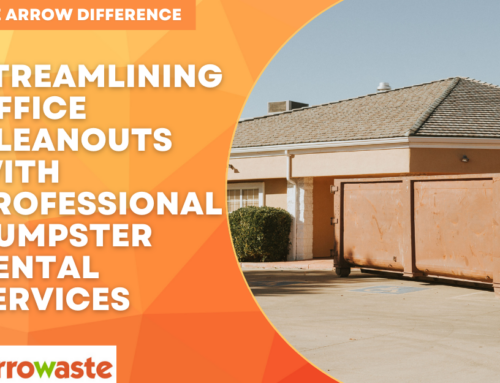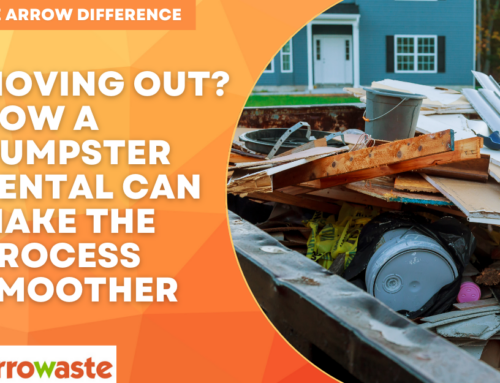We all have material in our homes that can potentially be dangerous to ourselves, our families, and the environment if they are not disposed of properly. However, it’s often confusing to identify what items should be recycled, what items can be tossed in the trash, or what items are hazardous and must be disposed of safely.
According to the United Nations Centre for Human Settlement, only between 25% and 55% of all waste generated is collected by municipal authorities, so it is more important than ever to take responsibility in your garbage pickup and waste management. Here is a list of common hazardous household materials and how to properly dispose of them.
1. Aerosols
Even partially full cans can explode if punctured or exposed to heat. Before disposing the cans, make sure to ask your trash removal company if they accept cans. If they don’t, simply empty the bottle and it can be tossed in the trash.

2. Batteries
Many household items are powered by batteries, so if it lights up, makes a sound, or moves, make sure to remove the batteries from the object before you get rid of it. Then check with your county for battery-specific drop-off sites around town.
3. Products that contain mercury
Mercury can be found in thermometers, mirrors, vintage toys, and thermostats. Both fluorescent and high-intensity discharge light bulbs contain mercury as well. It is illegal to throw mercury away, so always take them to a specific hazardous waste material drop-off site put in place by your county.
4. Paints, paint thinner, and sealants
The chemicals in these paints can be dangerous if ingested, so make sure to use them up completely! If you cannot, many hardware stores have paint recycling programs that will accept your partially full cans.
5. Household products
Some common culprits include oven and drain cleaners, bug killers and sprays, mouse poison, and weed killers — these are all too hazardous for the trash.
6. Automotive products
All fuel and fluids that you put into your car should not be put in the garbage. They are flammable and extremely toxic, so sealed containers should be brought to automotive shops for recycling.
At the end of the day, always read the label on the product if you are unsure of how to dispose of it. Have any questions? Contact your neighborhood waste management company today!

